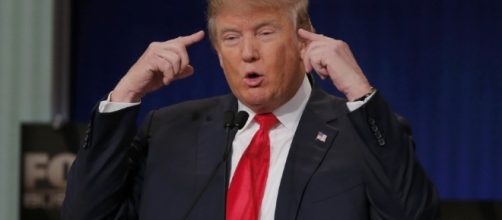Acts have consequences. On Wednesday the Fed raised interest rates to a max of 1 percent and we have striking evidence of the harm such a minor tweak can do around the world. The New York Times has a chilling report on workers from Mexico and Malaysia and consumers all over who are affected by the decisions of our central bank. It gives us some perspective. Trump has power but compared to the Fed, there's no comparison.
The harmful effect
That little raise slashes people's pay in poor nations. The Fed may bump up still more. When it does money leaves where it is and comes to the US.
It is often useful to look at the world of business and finance, merely to be reminded that it has a life of its own. What it does can have positive or hurtful results. The New York Times report noted here is a good place to start thinking of solutions.
Explaining the Fed
The Fed is said to be under the authority of the American people, It appears to be under the authority of itself and the Congress. In additional to the central Fed and its Board of Governors -- seven but now six, awaiting a Trump appointee -- there are 12 regional banks and a plethora of related entities. In other words, it is a sprawling system and its power is huge, and it is a key player in the reality not only of the United States but of the whole world.
The Fed Acts. Workers in Mexico and Merchants in Malaysia Suffer. https://t.co/EpQnCu8xSE
— Stephen C. Rose (@stephencrose) March 18, 2017
Our central bank can warm up economies by lowering rates and cool them down by raising rates. It is, the Time's concludes, the world's central banker. Likewise, the dollar is the central currency, gaining value when rates are higher.
Irony abounds
If we are concerned with the well-being of all, it seems ironical that prospering here might raise rates still further and cause more pain in countries that have much greater need than we do. A logical conclusion might be to consider a world where the fortunes of all are related in a positive way so pain and profit are shared equally. Those working to create a system of Universal Basic Income (UBI) should consider the disjunctures caused by the Fed as a basis for trying to design a truly global economy.

